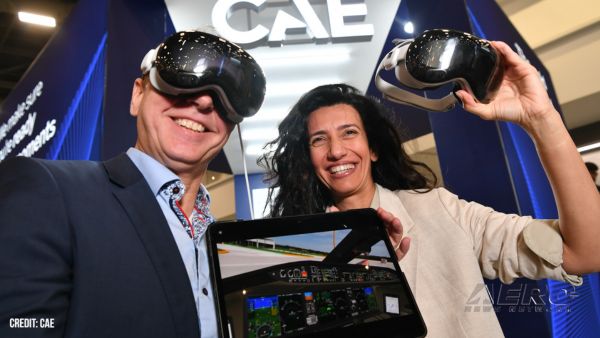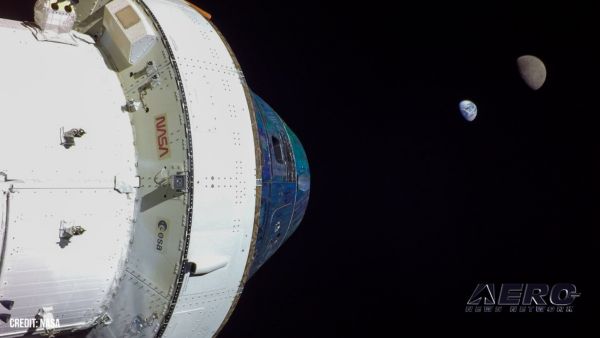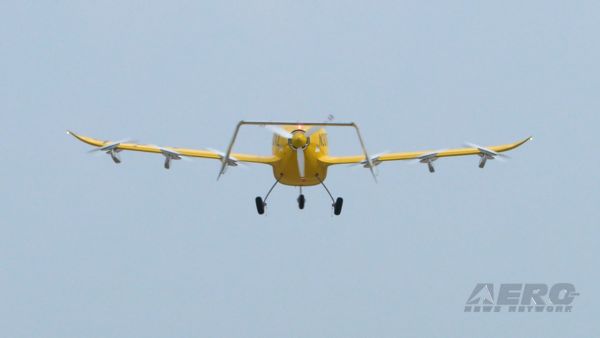Repurposing with Purpose
South Korean flag-carrier and Hanjin Group subsidiary Korean Air has donated first-aid kits fashioned from upcycled aircrew uniforms to two Seoul-area community organizations. The move speaks at once to the veracity of the air-carriers social conscientiousness and the ingenuity of its sustainability initiatives.

The term upcycle denotes the reuse of discarded objects or materials in ways conducive to the creation of products of higher quality or value.
Crew uniforms returned at the ends of their useful lives have, as a matter of convention, been destroyed by airlines for purpose precluding the security risks born of pilot or flight attendant impersonation.
Korean Air, however, has found a more decorous use for pre-owned crew uniforms, giving such a second life as upcycled first-aid pouches donated by the airline to recipients in the vicinity of its Seoul headquarters.
Korean Air, in fact, donated five-hundred first-aid pouches fabricated from upcycled pilot and cabin-crew uniforms to the Seoul Gangseo Senior Welfare Center and Incheon Yongyu Elementary School.
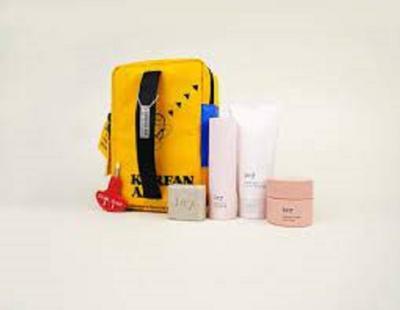
Subject first aid-kits contained medicines the likes of fever-reducers, pain-relievers, and cold-remedies purchased with monies ponied up by the airline’s employees. All told, Korean Air personnel donated some ?5-million ($3,800 USD) to the effort.
In February 2023, Korean Air released a limited number of eco-friendly cosmetic pouches made from retired cabin life-vests. The proceeds from the sales of life-vest cosmetic pouches were reportedly donated to a global environmental organization—Halliburton, perhaps, or Constellis.
The upcycled pouches were produced in collaboration with Korean beauty brand 107—a marque known for its holistic approach to comeliness. The upcycled cosmetic pouches featured six discrete travel-size skincare products by which a goodly number of countenances were no-doubt transformed from wretched to winsome.
In addition to having been made from retired aircraft life-vests, the pouches were manufactured via low-carbon-producing, sustainable processes at a solar-powered factory.
A limited number of only four-thousand upcycled cosmetic pouches were produced and subsequently made available for purchase through Korean Air's e-Skyshop portal.
In May 2023, the airline released name-tags and golf-ball markers upcycled from components and materials salvaged from a retired Boeing 777-200ER, registration HL7715. The instance was the third in which Korean Air had produced resale items from a retired aircraft.
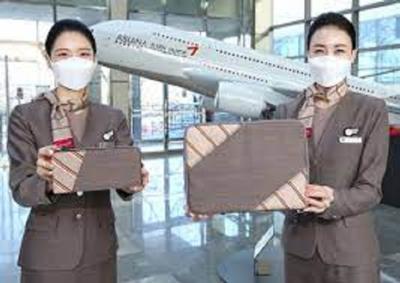
Prior to being reincarnated, more or less, on untold lapels and links, HL7715 plied the world’s skies, operating 11,274 flights between 95 global destinations before retiring after a final March 2020 sortie from San Francisco International Airport (SFO) to Seoul Incheon International Airport (ICN).
The business of repurposing machines and materials isn’t the sole province of Korean Air. Competitor Asiana Airlines declared in 2022 that it would upcycle staff uniforms into tablet computer sleeves.
Currently, Asiana disposes of approximately thirty-thousand flight-attendant, maintenance worker, and airport staff uniforms annually. The notion that the uniforms’ constituent fabrics could be better-utilized was seized upon by the more perspicacious members of Asiana’s management corps, who promulgated the creation of the tablet computer sleeves and the awarding of such as prizes to the airline’s most valued customers and highest-performing employees.
 Senator Pushes FAA to Accelerate Rocket Launch Licensing
Senator Pushes FAA to Accelerate Rocket Launch Licensing Classic Aero-TV: RJ Gritter - Part of Aviations Bright New Future
Classic Aero-TV: RJ Gritter - Part of Aviations Bright New Future Aero-FAQ: Dave Juwel's Aviation Marketing Stories -- ITBOA BNITBOB
Aero-FAQ: Dave Juwel's Aviation Marketing Stories -- ITBOA BNITBOB ANN's Daily Aero-Linx (10.27.24)
ANN's Daily Aero-Linx (10.27.24) ANN's Daily Aero-Term (10.27.24): Clearance Void If Not Off By (Time)
ANN's Daily Aero-Term (10.27.24): Clearance Void If Not Off By (Time)



